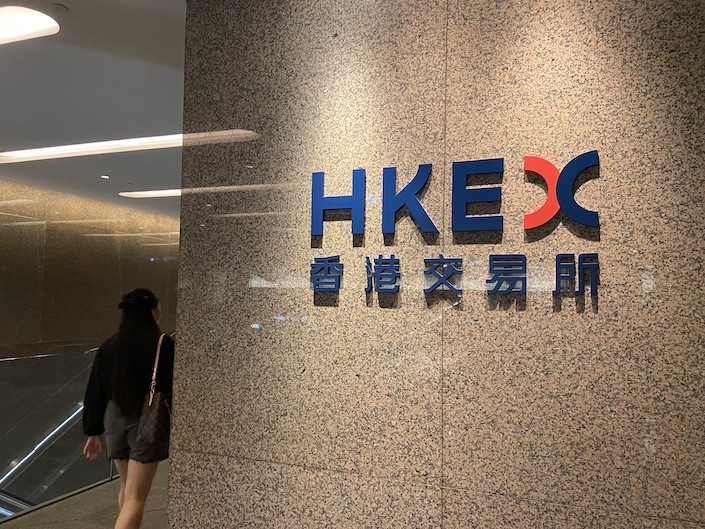Hong Kong Bourse to Offer China A-Share Index Futures

Hong Kong’s stock exchange will launch long-awaited A-share index futures contracts in October, giving global investors a new tool to hedge China risk.
Hong Kong Exchanges & Clearing Ltd. (HKEX) signed an agreement with MSCI Inc. to offer futures contracts based on the MSCI China A 50 Connect Index, tracking the performance of 50 Shanghai and Shenzhen stocks available via stock connect programs, the exchange said Friday. The product will be available Oct. 18, the HKEX said.
The MSCI China A 50 Connect Index is designed to offer a comprehensive representation of the Chinese economy by including 50 stocks of large-cap A-shares in 11 sectors and by targeting at least two stocks from each sector, the HKEX said.
The futures product also gained Chinese regulators’ approval. In a separate statement Friday, the China Securities Regulatory Commission (CSRC) said it supports the initiation of the HKEX A-share index futures, which would help to attract more long-term foreign capital into mainland China stocks and maintain Hong Kong’s status as an international financial center. The CSRC said it would deepen restructuring in China’s domestic index futures market to promote coordinated development of onshore and offshore derivative markets.
Read more
In Depth: Progress and Pitfalls for Foreign Investors in China’s Capital Markets
Foreign investors’ confidence in the China market has been shaken lately by geopolitical risks and regulatory tightening at home and abroad. Foreign institutional investors, especially in the U.S., face pressure from the U.S. government’s administrative ban on investment in dozens of Chinese tech and defense companies that allegedly have military ties. China’s recent crackdown on the education and internet sectors rattled markets at home and abroad, sending shares of several companies plummeting.
Since their initiation in 2014, the Shanghai and Shenzhen stock connect programs with Hong Kong have become the main channel for international investors to tap China’s A-share market and helped in the inclusion of Chinese stocks in key global indexes. In the first half this year, northbound daily trading volume of the programs reached a record 114.4 billion yuan ($17.6 billion). On July 7, 2020, the trading volume reached the single-day record of 191.2 billion yuan.
After peaking in the first quarter, average daily turnover in the stock connect programs has fallen since the second quarter, with the CSI 300 index down more than 8% so far this year.
HKEX Chief Executive Officer Nicolas Aguzin, who took the position in May, said the new A-shares derivative product will be the “next game-changing development” to support the Chinese mainland’s financial market development. The futures contract will serve as a key risk management tool for investors, he said.
The importance of China in global investment portfolios is growing as the country’s market capitalization weight in the MSCI Emerging Markets Index increasing from 18% in December 2009 to 34% in August 2021, said Henry Fernandez, chairman and chief executive officer of MSCI, the American provider of global indexes.
Currently only some Chinese A-shares are included in MSCI’s global indexes. MSCI has stressed that A-shares’ weight can be increased only after Chinese authorities address a number of remaining market accessibility questions, including restrictions on access to hedging and derivative instruments as well as concerns regarding the short settlement cycle of China A-shares.
In the past, foreign investors buying A-shares through overseas channels lacked effective hedging tools, which made it difficult for them to manage risk during market fluctuations. Currently the only A-share index futures available are the FTSE A50 index futures listed on the Singapore Exchange, but the use of the index and related products has never been formally recognized by Chinese regulators.
SSE Infonet Ltd., a data management unit of the Shanghai Stock Exchange, sued the FTSE in 2006 over the right to provide price information for the futures contract, alleging that the FTSE’s contract with Singapore was a violation of China’s intellectual property. The lawsuit still hasn’t been resolved.
Contact reporter Denise Jia (huijuanjia@caixin.com) and editor Bob Simison (bobsimison@caixin.com)
Download our app to receive breaking news alerts and read the news on the go.
Get our weekly free Must-Read newsletter.






